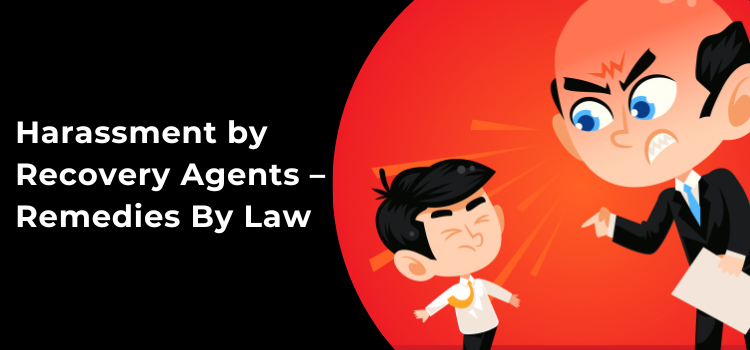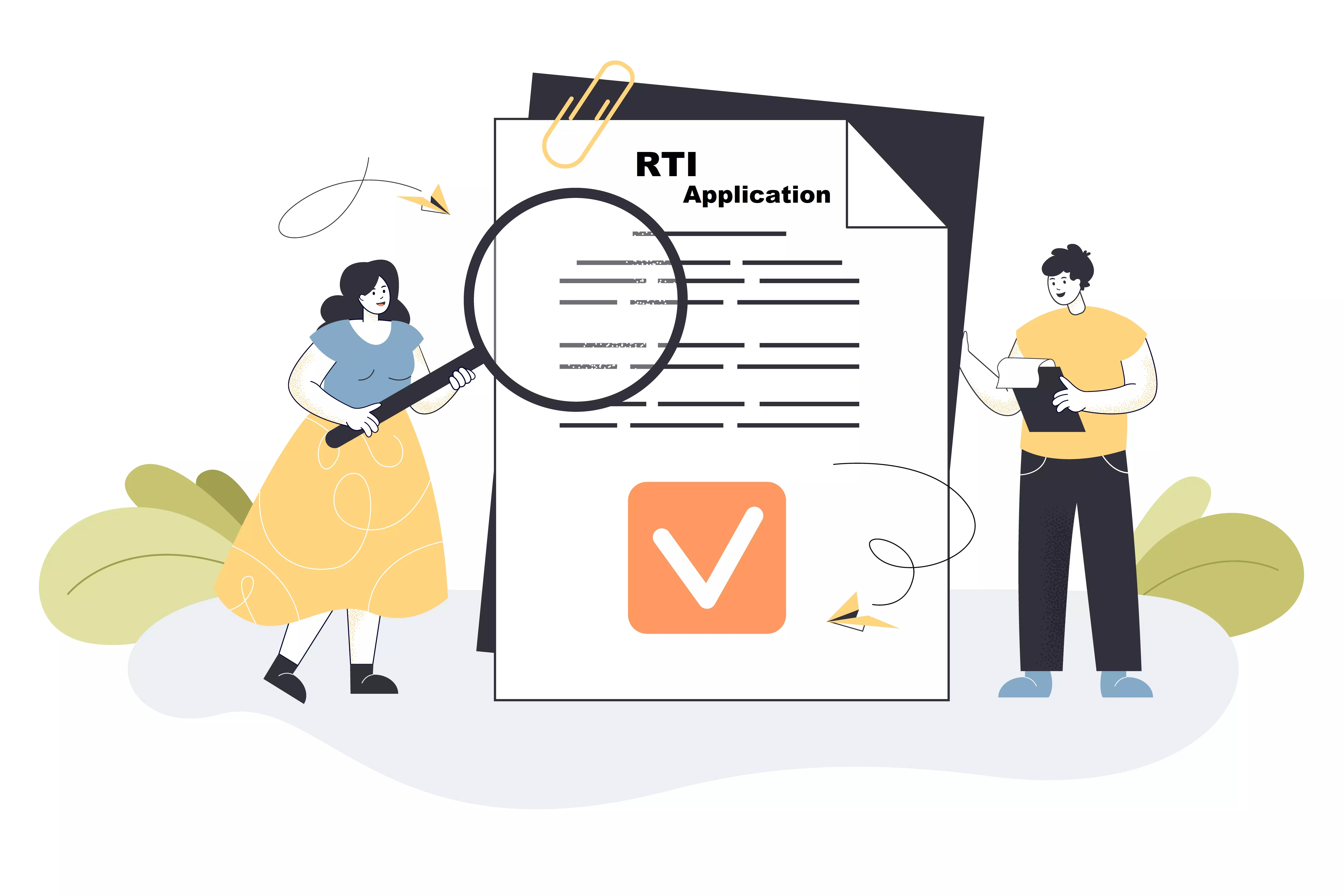Harassment by Recovery Agent - Remedies by Law in India
Harassment by Recovery Agent - Remedies by Law in India
Introduction
Recovery agents are
people or companies hired by lenders to collect overdue loans from borrowers.
They are also known as debt collectors or collection agents. While recovery
agents play a vital role in the debt recovery process, there have been many
cases where they have resorted to harassment, intimidation, and violence
against borrowers. This can cause immense mental and physical stress for
borrowers and violate their rights and dignity.
Harassment by recovery
agents is a serious issue that needs to be addressed by law. Fortunately, there
are some legal remedies available for borrowers who face such harassment in
India. These remedies are based on the guidelines issued by the Reserve Bank of
India (RBI), the Indian Penal Code (IPC), and other relevant laws and
regulations.
What constitutes harassment by recovery agents?
According to the RBI
guidelines, recovery agents must follow a code of conduct while dealing with
borrowers. They must respect the privacy, dignity, and rights of borrowers and
refrain from any unfair or abusive practices. Some of the prohibited practices
by recovery agents are:
· Contacting borrowers at odd hours or too
frequently
· Contacting borrowers’ relatives, friends, or
employers without their consent
· Using abusive, threatening, or obscene
language
· Impersonating as police, court officials, or
lawyers
· Making false or misleading claims about legal
action or consequences
· Physically assaulting or harming borrowers or
their property
· Publicly humiliating or defaming borrowers
If recovery agents
engage in any of these practices, they can be considered as harassing borrowers
and can face legal action.
What are the legal remedies for harassment by recovery agents?
Borrowers who face
harassment by recovery agents have several legal options to protect themselves
and seek justice. Some of these options are:
· Filing a complaint with the police: Borrowers
can file a complaint with the nearest police station against the recovery agent
and the lender under Section 506 of the IPC, which deals with criminal
intimidation. They can also invoke other sections of the IPC that deal with
assault, extortion, defamation, trespassing, etc., depending on the nature and
severity of the harassment.
· Filing a civil injunction suit: Borrowers can
file a civil injunction suit against the recovery agent and the lender in a competent
court and seek an interim relief to restrain them from harassing them further.
They can also claim compensation for the damages caused by the harassment.
· Filing a complaint with the RBI: Borrowers can
file a complaint with the RBI or the Banking Ombudsman against the recovery
agent and the lender for violating the RBI guidelines on the fair practices code.
The RBI can take disciplinary action against the lender or the recovery agent
for non-compliance.
· Filing a complaint with the consumer court:
Borrowers can file a complaint with the consumer court under the Consumer
Protection Act, 2019 against the recovery agent and the lender for deficiency
in service and unfair trade practice. They can seek redressal of their
grievances and compensation for their losses.
· Seeking legal advice: Borrowers can seek legal
advice from a lawyer or a legal aid organization to know their rights and
options regarding their loans and harassment by recovery agents. They can also
get assistance in filing complaints or suits against the recovery agent and the
lender.
How can borrowers avoid defaulting on their loans and facing recovery agents?
The best way to avoid
defaulting on loans and facing recovery agents is to repay them on time and in
full. However, if borrowers face any financial difficulties or emergencies that
prevent them from doing so, they can:
· Contact their lender as soon as possible and
explain their situation. They can request a restructuring of their loan, a
moratorium, a waiver of interest, or any other relief that may be available.
· Seek help from a financial counsellor or debt
management company that can help them plan their budget, negotiate with their
lenders, and consolidate their debts.
· Avoid taking more loans or using credit cards
to pay off existing debts. This will only increase their debt burden and make
it harder to repay.
· Seek legal advice from a lawyer if they are
unsure about their rights and obligations regarding their loans.
Conclusion
Harassment by recovery
agents is a serious issue that can cause immense distress and anxiety for
borrowers. However, Indian law provides remedies to protect consumers from such
misconduct and ensure fair and just debt collection practices. Borrowers who
face harassment by recovery agents have some legal remedies available to them.
They can also take steps to avoid defaulting on their loans and facing recovery
agents in the future.
Harassment by Recovery Agent FAQ
What is a recovery agent?
A recovery agent is a
person or a company hired by a lender to collect overdue loans from borrowers.
Recovery agents are also known as debt collectors or collection agents.
What are the rights and responsibilities of recovery agents?
Recovery agents have the
right to contact borrowers and demand repayment of their debts. However, they
also have some responsibilities and limitations, as per the guidelines issued
by the Reserve Bank of India (RBI). Some of these are:
· Recovery agents should not resort to
intimidation or harassment of borrowers, verbally or physically.
· Recovery agents should not take any action
that humiliates borrowers publicly or invades their privacy.
· Recovery agents should not send inappropriate
messages on phones or social media platforms.
· Recovery agents should not threaten borrowers
with legal action, violence, arrest, or seizure of property without proper
authority.
· Recovery agents should only call borrowers on
the phone between 8 am and 7 pm for recovery purposes.
What can borrowers do if they face harassment by recovery agents?
If borrowers face
harassment by recovery agents, they have some legal remedies available to them.
They can:
· Preserve records of all the messages, emails,
and calls from the recovery agent to prove that they are being
harassed. This will be important in filing a complaint.
· Approach their loan officer or the lender with
all the evidence against the recovery agent. The lender is responsible for
the actions of their recovery agent and should take prompt and appropriate
action to stop the harassment.
· File a complaint with the RBI or the Banking
Ombudsman if the lender does not respond or resolve the issue. The RBI has
issued guidelines to prevent harassment by recovery agents and can take action
against the lender or the recovery agent for violating them.
· File a complaint with the police station if
the recovery agent has threatened or harmed them physically or
mentally. This is a criminal offence and can lead to the arrest and
prosecution of the recovery agent.
· File a civil lawsuit against the recovery
agent if they have broken any laws or caused any damage to their reputation,
property, or well-being. They can seek compensation for their losses and
suffering.
How can borrowers avoid defaulting on their loans and facing recovery agents?
The best way to avoid
defaulting on loans and facing recovery agents is to repay them on time and in
full. However, if borrowers face any financial difficulties or emergencies that
prevent them from doing so, they can:
· Contact their lender as soon as possible and
explain their situation. They can request a restructuring of their loan, a
moratorium, a waiver of interest, or any other relief that may be available.
· Seek help from a financial counsellor or debt
management company that can help them plan their budget, negotiate with their
lenders, and consolidate their debts.
· Avoid taking more loans or using credit cards
to pay off existing debts. This will only increase their debt burden and make
it harder to repay.
· Seek legal advice from a lawyer if they are unsure about their rights and obligations regarding their loans.













Comments
Post a Comment
Thanks, For Your Valuable Comment